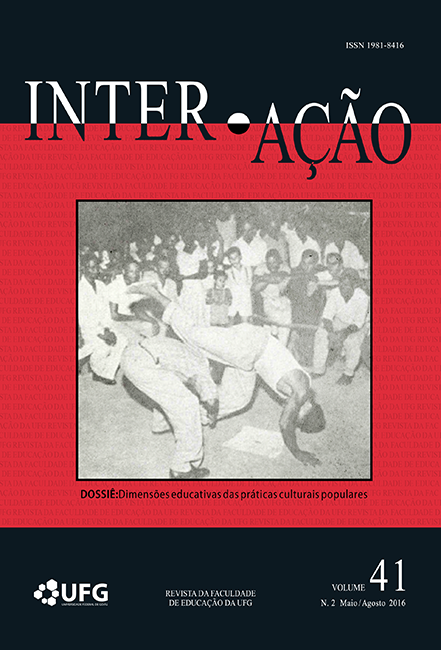JOVENS MULHERES DE PERIFERIA E O FUNK OSTENTAÇÃO
DOI:
https://doi.org/10.5216/ia.v41i2.40795Keywords:
Estudos Culturais, gênero, consumo, música.Abstract
O artigo visa analisar relações estabelecidas entre jovens alunas de uma escola da periferia do município de Porto Alegre (RS) e o estilo musical funk ostentação. Mais especificamente, busca-se problematizar a construção de ideais de relacionamentos afetivo-sexuais e de relações de gênero, pelas jovens, em articulação com tais músicas. Primeiramente, analisam-se as cinco músicas de maior evidência entre as jovens e, posteriormente, problematizam-se os dados produzidos em grupos de discussão. Dentre os resultados, destacamos a acolhida das jovens para os enunciados que destacam os homens como promotores financeiros dos sonhos de consumo femininos e seus anseios por relacionamentos de maior durabilidade, contrariando a representação de sucessivos relacionamentos breves apresentados nas suas músicas preferidas.
Downloads
Downloads
Published
How to Cite
Issue
Section
License
Inter-Ação uses the Creative Commons Attribution 4.0 License for Open Access Journals (Open Archives Initiative - OAI) as the basis for the transfer of rights. Open access means making documents available on the Internet free of charge, so that users can read, download, copy, distribute, print, search, or link to the full text of documents, process them for indexing, use them as input data for software programs, or use them for any other lawful purpose, without financial, legal, or technical barriers.
Authors publishing in this journal agree to the following conditions:
1) Authors retain copyright and grant the journal the right of first publication, with the work simultaneously licensed under the Creative Commons Attribution License, which permits redistribution of the work with attribution and first publication in this journal.
2) Authors are permitted to enter into additional, separate agreements for non-exclusive distribution of the version of the work published in this journal (e.g., for publication in an institutional repository or as a book chapter), with attribution and first publication in this journal.
3) Authors are permitted and encouraged to publish and distribute their work online (e.g. in institutional repositories or on their home page) at any time before or during the editorial process, as this may generate productive changes as well as increase the impact and citation of the published work.















